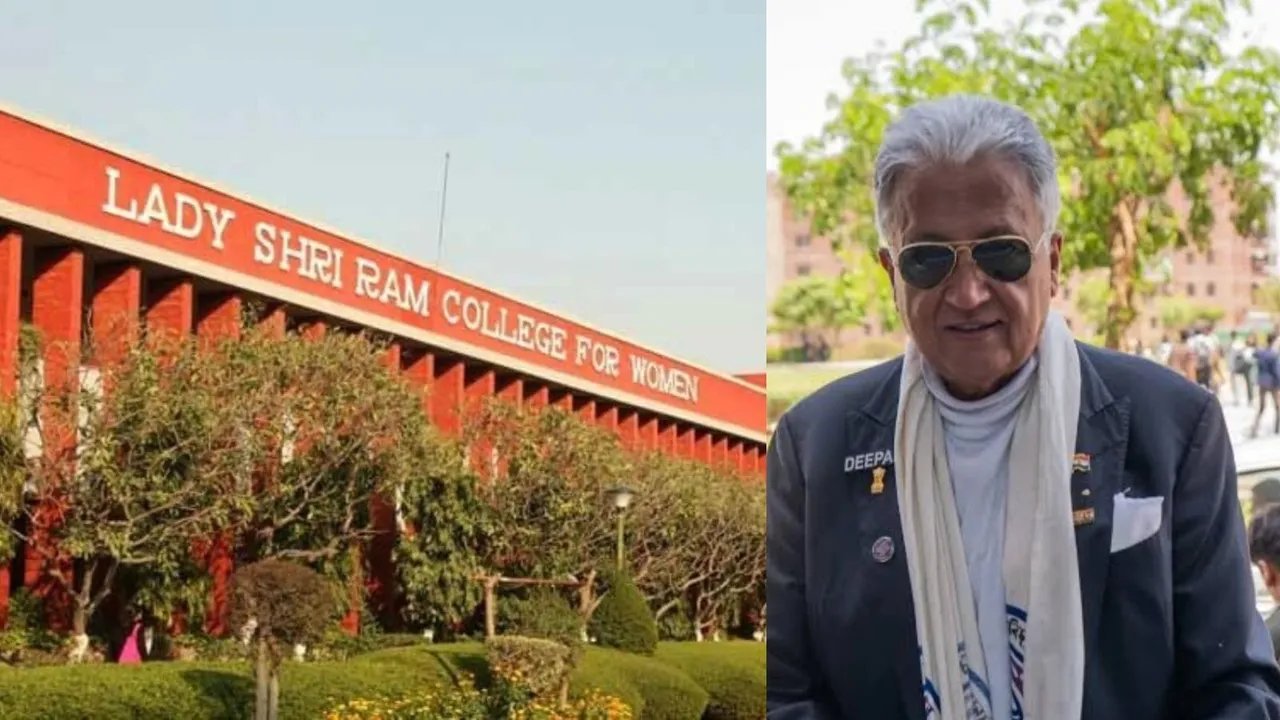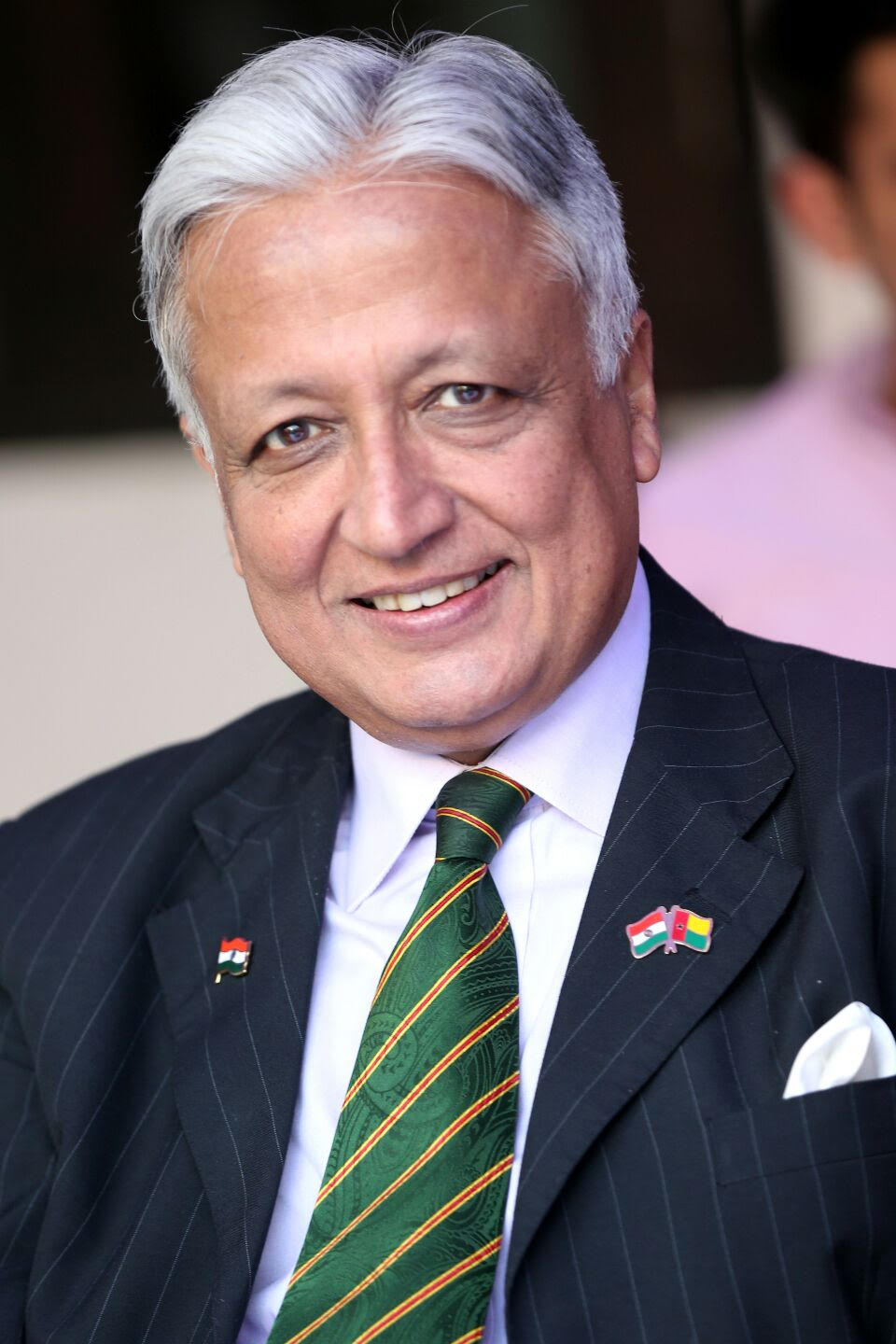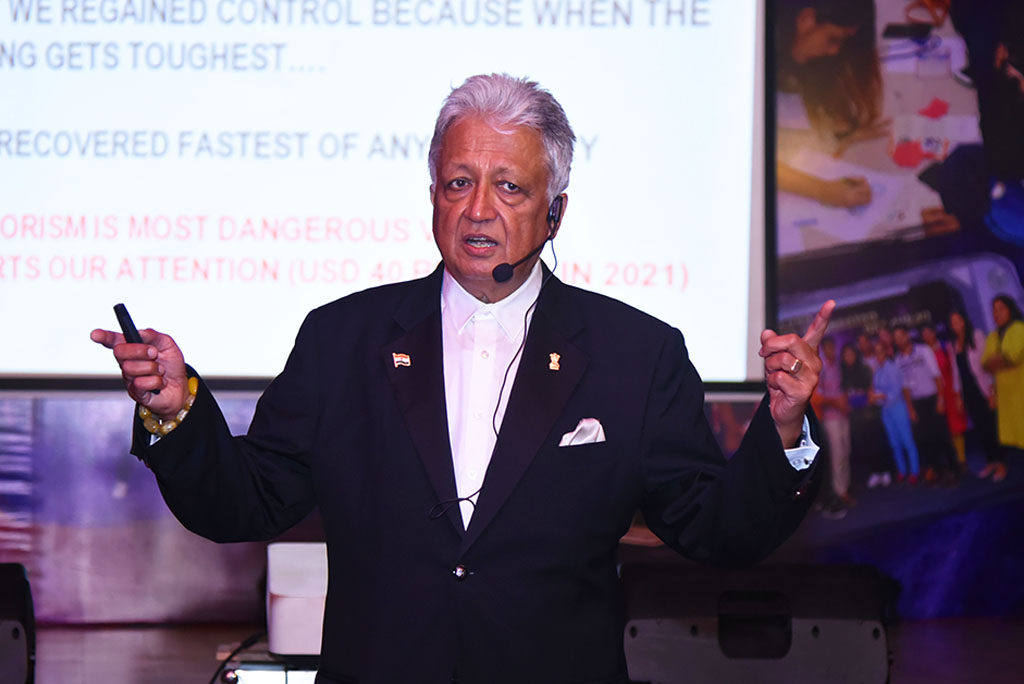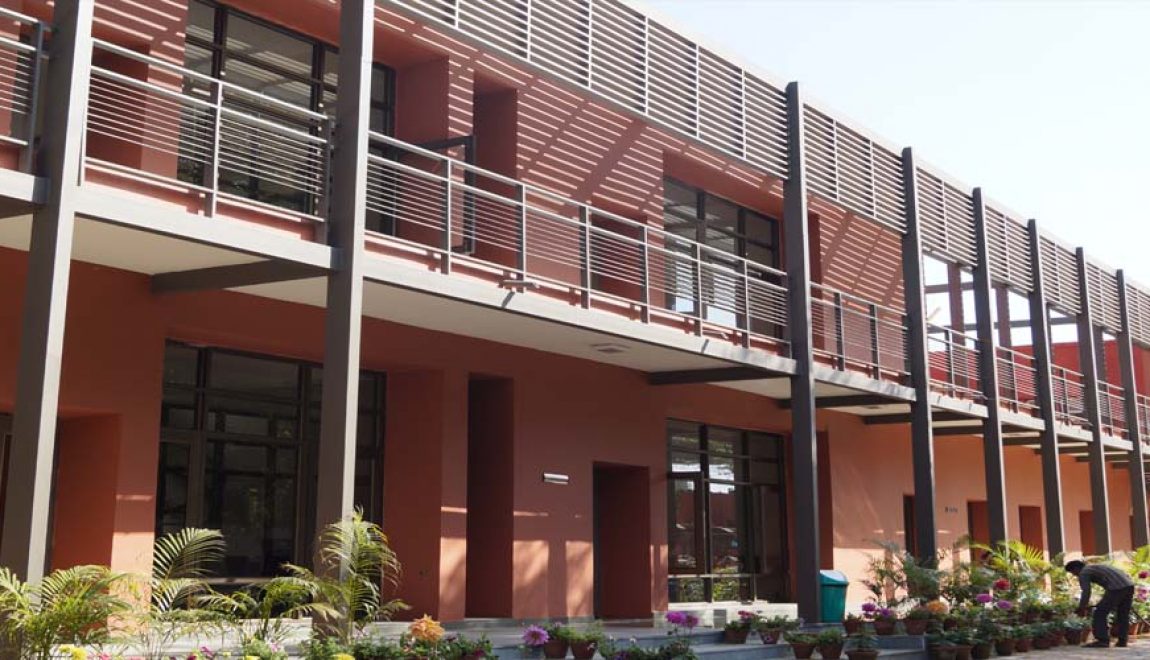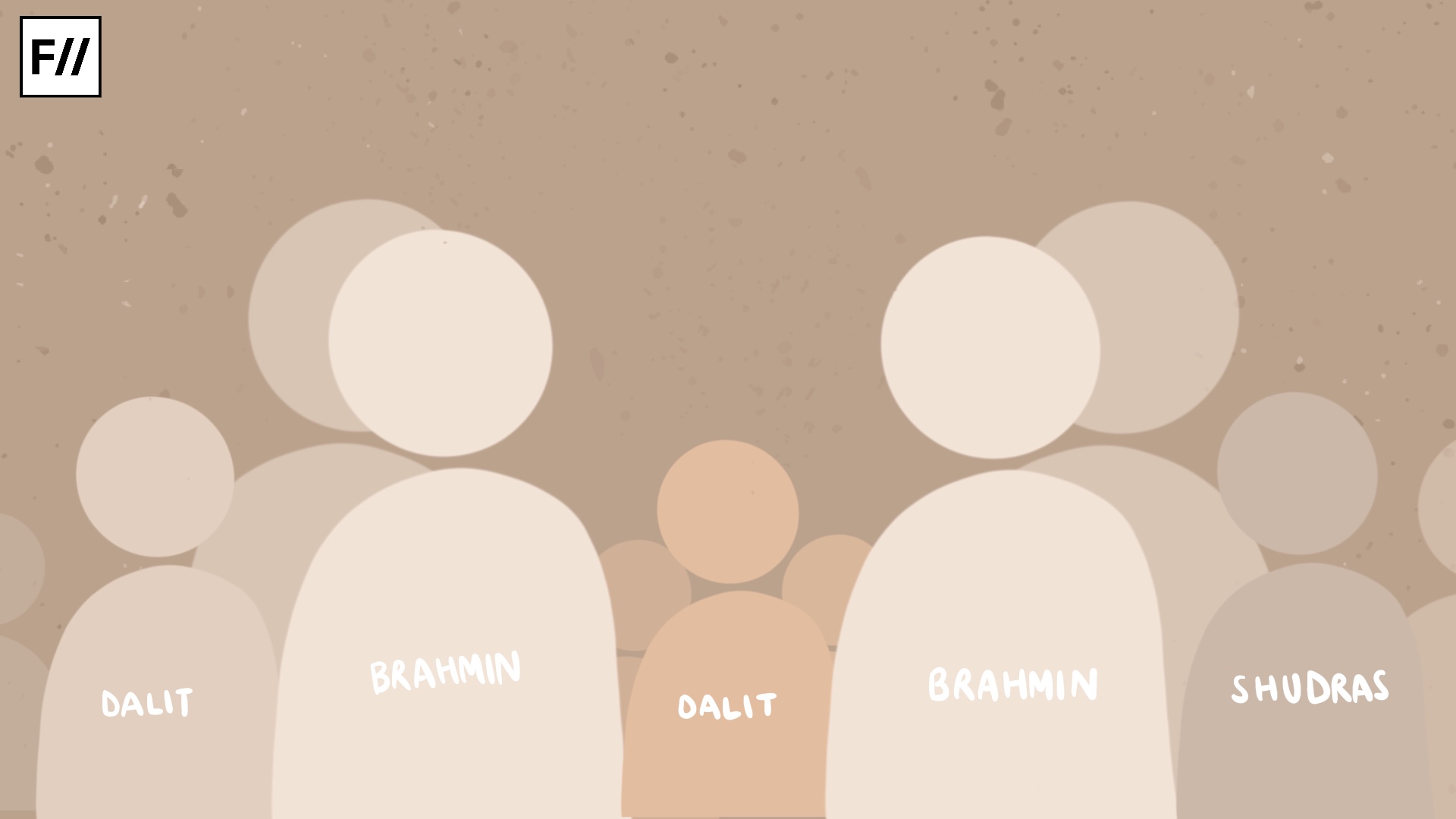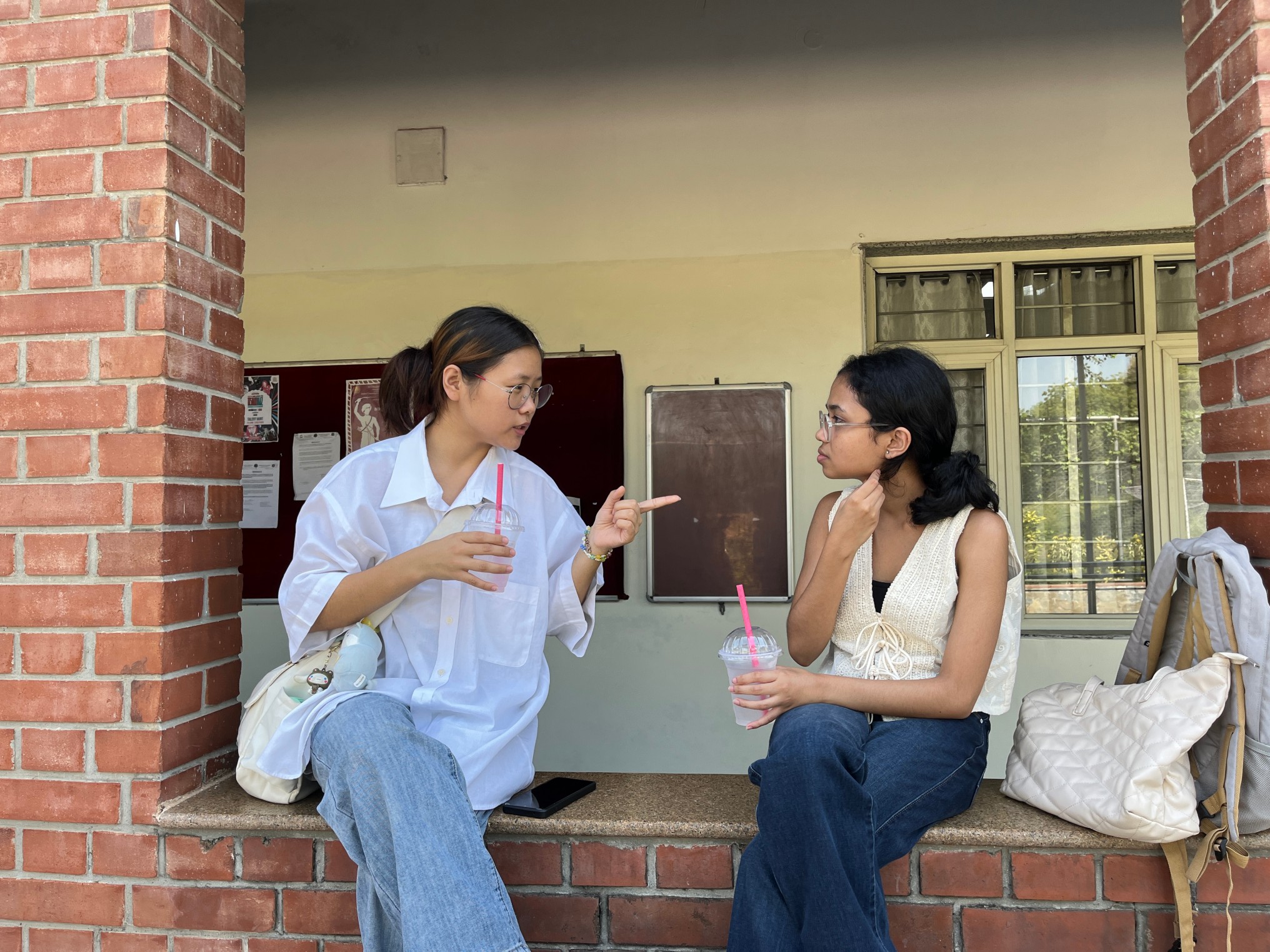It was a usual Thursday morning on September 11, 2025, at Lady Shri Ram College for Women (LSR) until students spiralling out of the packed auditoriums after a speaker session found themselves torn between horror and bewilderment in equal measure. Renowned for its focus on liberal education and women’s emancipation, DU’s Lady Shri Ram College for Women recently found itself mired in the midst of controversy after a speaker session by Retd. IFS Officer Deepak Vohra received massive backlash for spewing hatred and misogyny.
Organised by LSR’s BA Programme Department as part of their annual fest, Sangam, the department has distanced itself from the content of his speech, reiterating that they were his personal viewpoints. The incident, however, is a black spot on insitutional prestige, raising a question mark on how easily communal remarks and sexism are passing unchecked on campus.
Islamophobic, misogynistic, casteist, and queerphobic: Deepak Vohra’s remarks draw flak from the LSR community
Deepak Vohra’s speech on the LSR Campus, which has drawn apparent flak for bearing a slant of “misogyny, queerphobia, Islamophobia, and hatred,” was clearly divisive and offensive in nature and has since brewed considerable tension on the campus, with students demanding greater accountability as well as a public apology from Vohra.
The session, titled “Unstoppable India 2047,” was intended to be a positive discussion meant to spark dialogue on India’s growth strategies, policy reforms, and similar efforts paving the way for national development. To the students’ surprise, however, the seminar took a “demeaning and exclusionary” turn with objectionable comments made by him. His speech was laced with vulgar musical bytes throughout the session, flirtatiously referring to the college principal, clearly causing significant discomfort.
Proudly calling himself ‘Modi ka chamcha, Maha Chamcha,‘he passed malicious remarks on the Muslim community, declaring how he would have four wives if his name was Muhammad, one of whom would be the college principal. He also urged the student community at LSR to understand their obligatory role in society as ‘good wives and mothers who would bear good sons.’ Reiterating his desire to be ‘reborn as a man in every life,‘ what, however, has struck the most is the fact that his speech drew applause and forced laughter tinged with uneasiness from the students as he pestered them to hoot and clap as he spoke.
Ayesha (name changed for identity protection) says, ‘It is surprising how easily the crowd cheered for him even as he passed comments that were clearly misogynistic and filled with hatred as well as communal. It is still hard to believe that he had the audacity to say all that, in an institution, as respectable as LSR. We are clearly hurt and shocked. What has happened should never have happened and the least he owes us is an apology.‘
Reiterating his desire to be ‘reborn as a man in every life,‘ what, however, has struck the most is the fact that his speech drew applause and forced laughter tinged with uneasiness from the students as he pestered them to hoot and clap as he spoke.
In his presentation titled “Bharat’s Four Azaadis,” he described 1947 as ‘freedom of our bodies,’ 2022 as the ‘freedom of our minds‘ (Netaji statue), 2023 as the ‘freedom of our confidence‘ (Chandrayaan-3), and 2024 as ‘freedom of our souls‘ (construction of the Ram Mandir), pronouncing his affiliation with aggressive Hindu nationalism and similar ideologies.
Punctuated with caste prejudice and queerphobia, his words clearly didn’t go down well with the student body at the college, which boasts of a liberating pedagogy that celebrates diversity by blending academics with rigorous ethical engagement and cosmopolitanism. Arna (name changed for identity protection), referring to the vulgar remarks made by him intended to marginalise the queer community, says, ‘It is hardly even surprising how most people wouldn’t even notice that his comments were also queerphobic in nature, and even if they did, it didn’t come to light as much because he also made misogynistic, Islamophobic, and casteist comments, which are apparently the ‘bigger’ issues in India. So even though feminism does and should extend to queer people in India, there are many other issues we need to overcome first before we even start asking people to take accountability for making queerphobic comments.‘
It is shameful how, even seven years after the decriminalisation of Article 377 by the Supreme Court of India, the LGBTQ community is still battling prejudice, with queerphobic jokes drawing cackling laughter hinting at the utter lack of gender sensitivity. In a country that is still fighting to shed off misogyny, claiming equal accountability for queerphobic statements in social spaces is still a distant dream.
Institutional accountability and the need for reform
Despite the institution’s focus on zealously raising educational standards by creating a holistic learning space for women that emancipates the intellect and spirit, the fact that such extremist and derogatory viewpoints received a platform of amplification within the college premises poses deeper questions from the student body. How could such a serious lapse in background vetting of guests happen at LSR that he was allowed within the campus in spite of the nature of his ideology?
Why, despite the hostile religio-political rhetoric of Vohra’s speech, did nobody stand up to him? Students are also questioning that it is the same institution, which barred its alumna, Nivedita Menon, currently a professor in The School Of International Studies at Jawaharlal Nehru University, from delivering a lecture within the campus for its “apolitical leanings” who, later, had to settle for the National Park near the college.
It is high time that propaganda and hatred, dressed up as cultural nationalism is called out for what it is. Formerly serving as India’s ambassador to Poland, his speech sparks a debate on the impact such extremist rhetorics have on institutional health, especially when pronounced by someone in a respectable position. Vohra remained unavailable for comment when we reached out. However, he has issued an ‘unconditional apology‘ to LSR principal, Dr. Kanika Ahuja, for his remarks during the interaction which ‘upset the student and the staff body.’
Vohra remained unavailable for comment when we reached out. However, he has issued an ‘unconditional apology‘ to LSR principal, Dr. Kanika Ahuja, for his remarks during the interaction which ‘upset the student and the staff body.’
Yogita Mishra, a student at Lady Shri Ram College For Women, said, ‘What matters even more is where he made the remarks. Institutional spaces are definitely not the space for casteist, communal, and misogynistic remarks spreading malice since they brainwash the minds of students, especially because they are highly vulnerable right now. It is okay to have a political narrative, but proclaiming it loudly within educational spaces, in the name of patriotism is unacceptable.‘
Ever since the incident, the faculty at LSR has repeatedly emphasised the need for a sincere verification mechanism to prevent such incidents in the future, asserting that they weaken institutional foundations, converting them into breeding grounds for political tensions and division. The LSR Student’s Union, too, has issued a statement of condemnation foregrounding that’the delivery of such statements is a direct violation of our values and intellectual standards,’ further stating that’external speakers are invited to enrich the student body with their words, speaking with a sense of sensitivity, responsibility, and appropriateness demanded by the platform, yet the instance gravely compromised trust.‘Similarly, LSR’s Women’s Development Cell too, issued a statement reaffirming their commitment to’stand by the student body in its efforts to express anger, disappointment, and resistance.‘
The incident has struck a deeper chord within the college campus, as the remarks targeted not just women but also marginalised groups on the basis of caste, sexuality, and religion, posing significant concerns regarding their safety and representation, as the incident wounded everyone’s sentiments alike. It also exposed the lack of immunity of academic spaces to external attacks with a more polished face. Meant to train students in civility by raising standards of academic excellence, it is extremely necessary for institutions to effectively tackle such events with a stern hand to maintain their purpose in society as nurturing building blocks.
Meant to train students in civility by raising standards of academic excellence, it is extremely necessary for institutions to effectively tackle such events with a stern hand to maintain their purpose in society as nurturing building blocks.
What is, however, more important is to stand up to such direct violations of trust, not allowing aggressive conservatism and narrowness of thought to perpetuate in any way whatsoever, ensuring everyone gets equal chance and dignity in the social architecture of the nation.
About the author(s)
Nausheen is currently an undergraduate student pursuing journalism at Lady Shri Ram College for Women, Delhi University. With a keen interest in feminism, geopolitics, and social issues, her passions lie in research, writing, and public speaking. In her free time, she enjoys listening to music, sipping coffee, and playing chess.
